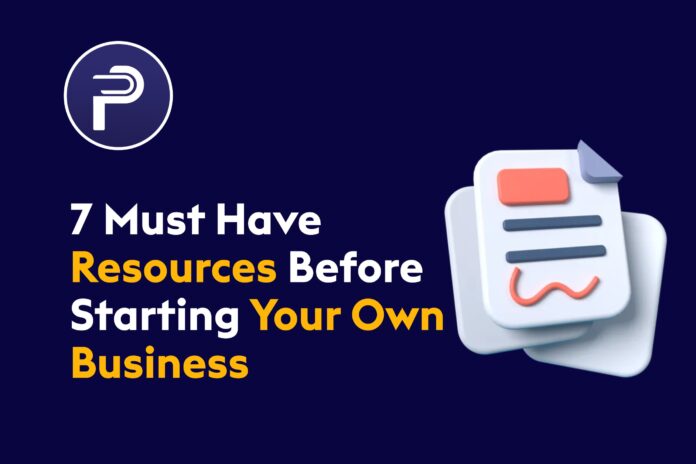Introduction
If there’s a lesson the COVID-19 pandemic taught us is that virtually anything can be conducted online, including launching a business venture. If you have a concept in mind and a clear understanding of what you want to provide or sell, you’ve tackled a crucial aspect of the journey. If not, explore potential side hustles or business concepts online, or brainstorm with your friends and acquaintances. However, the true journey begins after the initial idea generation phase.
How To Get Started
Many entrepreneurs find themselves at a standstill during this phase, unsure of where or how to initiate their business operations. While a Google search can offer a broad outline of the process, it often overlooks crucial details. Fortunately, numerous business schools cater specifically to aspiring entrepreneurs, providing comprehensive guidance on launching and overseeing your venture. In this blog post, we’ll delve into the essential resources you need to kickstart your business journey. Let’s get started!
Here Are 7 Must Have Resources Before Starting Your Own Business
Must Read:4 Tools You should Use in Your Organisation to Help Your Business Work Smarter
1. Resources on Planning

No need for uncertainty. Embarking on planning marks the foremost step. It stands as the pivotal component of commencing a business, offering a comprehensive overview of the venture’s essence and its potential viability.A business plan also:
- Sets your vision and mission.
- Charts out the kinds of products and services you’ll offer.
- Analyzes the kind of seed money you’ll need.
- Creates a budget for expenses.
- Outlines the human resources you’ll require, if any.
- Markets your products and services.
- Plans out how to retain customers to sustain your business.
You can start doing all the above on your own or get help from professional bureaus like Small Business Administration (SBA), or use tools like Bplans, SCORE, and Shopify.
2. Resources on Market Research

Although your idea and planning might be solid, and even if you believe there’s a substantial customer base, the crucial aspect lies in identifying the precise customers willing to purchase your offerings. Market research plays a vital role in this endeavor. Utilizing resources such as Statista, Pew Research Center, Census Bureau, SBA, and survey tools like SurveyMonkey can provide detailed insights through comprehensive market analysis.
3. Legal Resources
Prior to commencing operations, it is essential to ensure your business is officially registered. This is particularly crucial for businesses engaging in physical interactions with customers within and around the city, especially those involving physical product delivery or service provision. Registering your business involves two key aspects: compliance with tax regulations and safeguarding intellectual property rights. Seeking guidance from a lawyer or utilizing resources can be beneficial. Additionally, online platforms offer assistance with legal matters including trademarks, incorporation, partnerships, and sole proprietorship. Obtaining a license enables you to open a business account and apply for permits required for specific business types.
4. Financial Resources
With all the necessary paperwork completed, you can now turn your attention to securing funding for launching your business. The financial requirements vary significantly based on the nature of your venture. For instance, an online content writing service can be initiated with minimal investment, with you as the sole employee. Conversely, businesses like food delivery or salon services necessitate substantial investment for expenses such as renting a space, stocking inventory, and hiring staff. If you have personal savings available, you may not need to seek external funding immediately. However, it’s prudent to explore options for seed money to bolster your resources for unforeseen circumstances. Various resources are available for researching and applying for seed funding, including:
- Friends and family can help gather funds.
- Grants from government agencies
- Crowdfunding/fundraising events
- Startup accelerators like Paritie Innovation Hub.
There are tons of financial resources out there, but these will get you started.
5. Resources on Marketing Strategy
Establishing awareness for your business necessitates a robust marketing strategy and an outlined approach to engage with your target audience. From crafting a logo to forging a brand identity, and pinpointing the appropriate media and platforms for launching marketing initiatives, organizing marketing endeavors is imperative. Resources such as Hubspot Academy, Facebook, SEMRush, Hootsuite, and Mailchimp can offer insights into the essentials of commencing a digital marketing campaign. Alternatively, platforms like Canva (for quick template-based designs) and ZillionDesigns (for customized designs by professionals) provide avenues for acquiring professional branding materials. The objective behind securing these assets is to create an initial positive impression on your audience, captivating their interest and curiosity about your brand.
6. Resources on Networking

While online marketing endeavors play a crucial role in garnering publicity, it’s equally essential to engage with real people through networking efforts. Traditional networking events such as meetups, support groups, business gatherings, and fairs serve as excellent starting points. You can consider affiliating with governmental organizations . If feasible, securing a stall at events to promote your business, despite its typically high cost, can be advantageous as it provides an opportunity to interact directly with potential customers. Make the most of these interactions by delivering compelling pitches and showcasing your products and services effectively. When attending networking events focused solely on building connections, prioritize engaging with individuals who are likely to benefit from your expertise. During such interactions, aim to share information about your business without directly selling. To maximize the benefits of networking events, actively interact with attendees and endeavor to collect their contact information for future outreach.
7. Resources on Productivity

Prior to the acceleration of business operations, it’s advisable to prepare for your workflow and management approach. If you’re initiating the venture solo, establishing productive work hours for business-related tasks becomes more manageable. Tools such as Focus, Todoist, Google Sheets, Trello, and Kanban can serve as effective starting points. As your team expands, incorporating collaboration platforms like Microsoft Teams, Zoom, Asana, Slack, and Evernote facilitates task assignment, tracking, and communication.
Conclusion
While this compilation is not comprehensive, the mentioned tools can offer invaluable assistance. Additionally, management platforms like Monday.com, FreshBooks, and similar tools are crucial. Ultimately, you are the best judge of what your business requires. As a startup entrepreneur, endeavor to minimize expenses by exploring and going for freemium or affordable alternatives rather than investing in full-scale platforms that could strain your budget.

